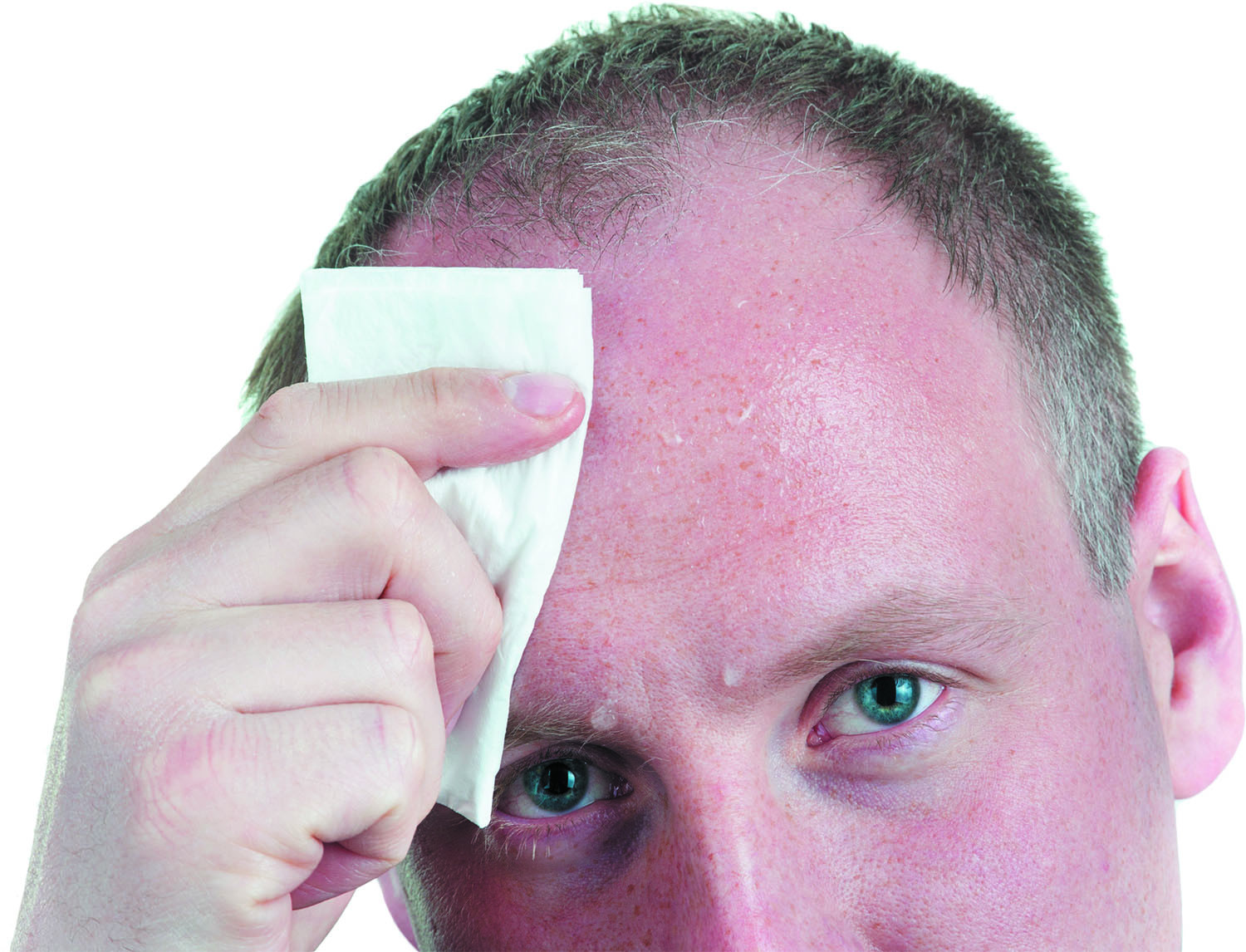
How — and why — to fit more fiber and fermented food into your meals

UTI in older women: Why postmenopausal women are susceptible to urinary tract infection, and what to do about it

Can a routine vaccine prevent dementia?

Some adults may need a measles booster shot. Who should get one and why?

Less butter, more plant oils, longer life?

Healthier planet, healthier people

Counting steps is good — is combining steps and heart rate better?

Appendix pain: Could it be appendicitis?

Can saw palmetto treat an enlarged prostate?

How does Ozempic work? Understanding GLP-1s for diabetes, weight loss, and beyond
Diseases & Conditions Archive
Articles
Avoiding health risks at the farmers’ market
Watch out for unpasteurized products, and ask vendors about food safety.
There's something magical about strolling through a farmers' market on a crisp autumn morning. The fruit and vegetables seem fresher there than they do in a store — apples taste tarter, tomatoes seem redder and riper. It's a farm-to-table connection that puts you in touch with nature and the harvest.
Maybe that's partly behind the explosion of farmers' markets across the country, climbing from about 2,000 markets in 1994 to more than 8,600 today, according to the Farmers Market Coalition. "It's a great way to get fresh produce and try different foods you may not have come across before. But it should be enjoyed with caution," urges Dr. Simi Padival, an infectious disease specialist with Harvard-affiliated Beth Israel Deaconess Medical Center.
Flu vaccine less effective in obese individuals
Research we're watching
Not only is obesity a risk factor for flu complications, but it might actually make the flu vaccine less effective, says a study published online June 6, 2017, by the International Journal of Obesity. Scientists at the University of North Carolina at Chapel Hill found that the flu shot provides less protection in people who are obese.
The study compared flu rates in 1,022 people during two recent flu seasons. All participants were vaccinated against the flu. The researchers looked at immune response to the vaccine and also tracked who went on to get the virus. They found that nearly 10% of obese participants got the flu, compared with 5% of their healthy-weight counterparts. This is bad news, because individuals with a body mass index of 40 or higher are also more prone to flu complications.
Most people with pinkeye get unnecessary treatment
In the journals
If you get acute conjunctivitis, or pinkeye, you probably don't need antibiotic eye drops, suggests a study published online June 14, 2017, by Ophthalmology.
Pinkeye is caused by viral infection, allergy, or bacterial infection. Most people with pinkeye are prescribed antibiotic drops. However, a majority of cases are due to a virus or allergy, which do not respond to antibiotics. Antibiotic treatment can potentially delay healing and increase antibiotic resistance.
Ringing in the ear: tinnitus and hearing loss
Many people with hearing loss also have tinnitus, commonly known as ringing in the ear. This phrase is misleading, however, because some people hear ringing while others hear whistles, chirping, or a combination of sounds. Regardless of the particular sound, the distinguishing feature is that it doesn't have an external cause. People with tinnitus hear sounds that people around them don't hear. This isn't to say that tinnitus isn't real—researchers at the National Institute on Deafness and Other Communication Disorders have detected changes in brain activity that occur with tinnitus.
Strategies that can help
Some people with hearing loss and tinnitus find that both problems improve after they get a hearing aid or have a cochlear implant. Others find that their tinnitus symptoms improve somewhat when they cut down on caffeine and alcohol, reduce the amount of fat in their diets, and quit smoking. The following techniques may also help reduce your tinnitus symptoms:
Electronic screen alert: Avoid this vision risk
Looking at a screen too long may lead to computer vision syndrome.
Image: © jacoblund/Thinkstock
There are many reasons to restrict the amount of time you spend in front of an electronic screen. For example, more hours sitting at a computer or smartphone means fewer hours of being physically active, and looking at a computer screen at night can stimulate the brain and make it difficult to fall asleep.
Here's another reason to curb screen time: a problem called computer vision syndrome — an umbrella term for conditions that result from looking at a computer or smartphone screen. "It's most prevalent with computers, and typically occurs when looking at a screen at arm's length or closer," says Dr. Matthew Gardiner, an ophthalmologist with Harvard-affiliated Massachusetts Eye and Ear Infirmary.
Hepatitis C: Still a major risk for baby boomers
News briefs
Image: © jarun011/Thinkstock
New cases of hepatitis C — a viral infection that attacks the liver — are at a 15-year high, according to surveillance data from the CDC released online May 11, 2017. The CDC estimates that there were about 34,000 new cases in 2015. Young adults (ages 20 to 29) account for most of the new infections, and the CDC attributes this to needle use from opioid addiction. But baby boomers (those born between 1945 and 1965) make up three-quarters of the 3.5 million people living with hepatitis C in the United States. Baby boomers are also the ones dying most often from the virus. New medicines can cure hepatitis C infections in as little as two to three months.
The CDC urges you to get a screening test for the virus if you were born between 1945 and 1965. Anyone who has used illicit intravenous drugs, had more than one sex partner, or who had a blood transfusion before 1992 also should get the test.
When is heavy sweating a problem?
On call
Image: © EunikaSopotnicka/Thinkstock
Q. I've noticed recently that I sweat excessively, regardless of the temperature. Should I be concerned?
A. Your genes can determine whether you sweat a lot, but a sudden change in your regular sweating may suggest an underlying condition. Sweating is regulated by your nervous system and can be triggered by a number of causes. The primary signal for perspiration originates in the brain in response to a temperature-related or emotional cue, and then is carried by the autonomic nervous system to the sweat glands in the skin.
Do I need to worry about floaters
A Harvard Medical School doctor answers a common eyesight question
Q: Recently, I started to notice tiny threadlike shapes in my field of vision. My doctor says they are "floaters." Should I be concerned?
A: "Floaters" is a catchall term for what look like dots, threads, or cobwebs drifting across your line of vision.

How — and why — to fit more fiber and fermented food into your meals

UTI in older women: Why postmenopausal women are susceptible to urinary tract infection, and what to do about it

Can a routine vaccine prevent dementia?

Some adults may need a measles booster shot. Who should get one and why?

Less butter, more plant oils, longer life?

Healthier planet, healthier people

Counting steps is good — is combining steps and heart rate better?

Appendix pain: Could it be appendicitis?

Can saw palmetto treat an enlarged prostate?

How does Ozempic work? Understanding GLP-1s for diabetes, weight loss, and beyond
Free Healthbeat Signup
Get the latest in health news delivered to your inbox!
Sign Up











